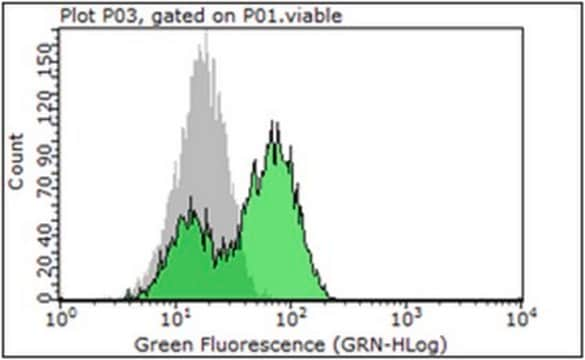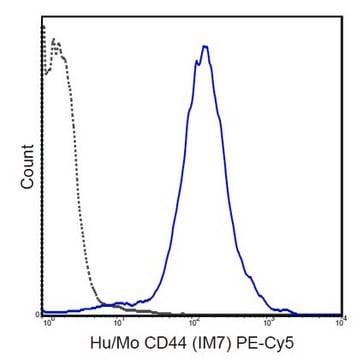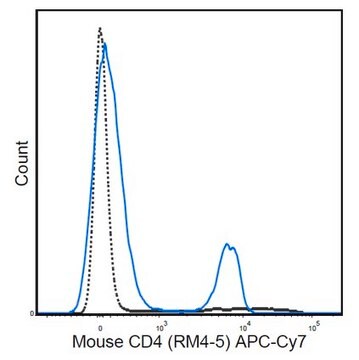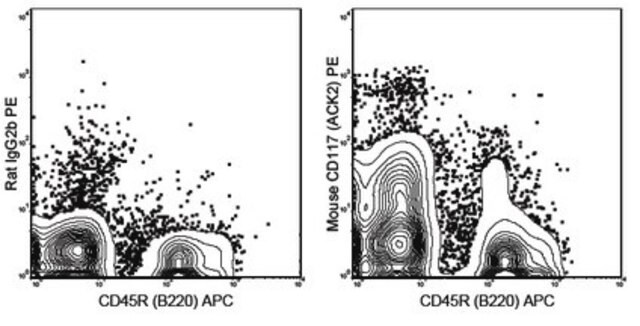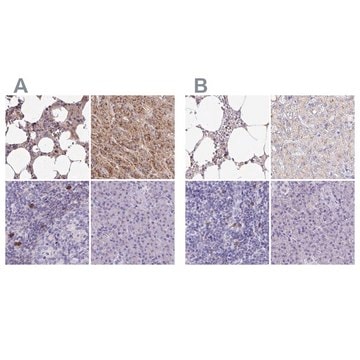MABF580
Anti-CD44 Antibody (human/mouse), APC, clone IM7
clone IM7, 0.2 mg/mL, from rat
Sinónimos:
CD44 antigen, Extracellular matrix receptor III, ECMR-III, GP90 lymphocyte homing/adhesion receptor, HUTCH-I, Hermes antigen, Hyaluronate receptor, Lymphocyte antigen 24, Ly-24, Phagocytic glycoprotein 1, PGP-1, Phagocytic glycoprotein I, PGP-I, CD44
About This Item
Productos recomendados
origen biológico
rat
Nivel de calidad
conjugado
Allophycocyanin conjugate
forma del anticuerpo
purified antibody
tipo de anticuerpo
primary antibodies
clon
IM7, monoclonal
reactividad de especies
mouse, human
envase
antibody small pack of 25 μg
concentración
0.2 mg/mL
técnicas
flow cytometry: suitable
immunohistochemistry: suitable
immunoprecipitation (IP): suitable
western blot: suitable
isotipo
IgG2bκ
Nº de acceso UniProt
Condiciones de envío
wet ice
modificación del objetivo postraduccional
unmodified
Información sobre el gen
human ... CD44(960)
mouse ... Cd44(12505)
Descripción general
Inmunógeno
Aplicación
Inflammation & Immunology
Calidad
Flow Cytometry Analysis: 0.125 μg of this antibody detected CD44 in one million C57Bl/6 splenocytes.
Forma física
Almacenamiento y estabilidad
Cláusula de descargo de responsabilidad
Not finding the right product?
Try our Herramienta de selección de productos.
Código de clase de almacenamiento
12 - Non Combustible Liquids
Clase de riesgo para el agua (WGK)
nwg
Punto de inflamabilidad (°F)
Not applicable
Punto de inflamabilidad (°C)
Not applicable
Certificados de análisis (COA)
Busque Certificados de análisis (COA) introduciendo el número de lote del producto. Los números de lote se encuentran en la etiqueta del producto después de las palabras «Lot» o «Batch»
¿Ya tiene este producto?
Encuentre la documentación para los productos que ha comprado recientemente en la Biblioteca de documentos.
Nuestro equipo de científicos tiene experiencia en todas las áreas de investigación: Ciencias de la vida, Ciencia de los materiales, Síntesis química, Cromatografía, Analítica y muchas otras.
Póngase en contacto con el Servicio técnico